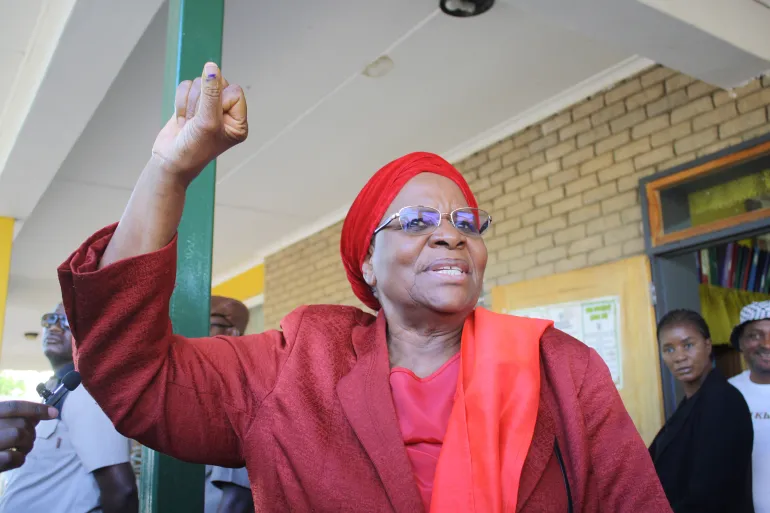Netumbo Nandi-Ndaitwah, from the ruling South West Africa People’s Organisation (SWAPO), has been elected as Namibia’s first female president, following a contentious election marred by logistical issues and extended polling.
The Electoral Commission of Namibia announced that Nandi-Ndaitwah secured over 57% of the vote, while her closest rival, Panduleni Itula of the Independent Patriots for Change (IPC), garnered 26%.
The election, held on November 27, faced significant challenges, including ballot paper shortages and technical difficulties, which led to a three-day extension in some areas.
These issues prompted opposition parties to reject the results and pledge to challenge them in court. Claus Goldbeck from the IPC described the voting process as an “organizational mess,” citing instances where voters waited in line for up to 14 hours only to be turned away due to insufficient ballot papers.
Despite the controversy, Nandi-Ndaitwah emphasized peace and stability in her victory speech, stating, “The Namibian nation has voted for peace and stability.” Her election marks a historic moment for Namibia, as she becomes the country’s first female president and joins Tanzania’s Samia Suluhu Hassan as one of Africa’s few female leaders.
Nandi-Ndaitwah, 72, has a long history with SWAPO, having joined the party in the 1960s during its fight for independence from apartheid South Africa.
She has held numerous senior roles, including foreign minister, and was promoted to vice president in February following the death of President Hage Geingob. Her victory extends SWAPO’s 34-year hold on power since Namibia gained independence in 1990.
In the parliamentary elections held simultaneously, SWAPO narrowly retained its majority, winning 51 of the 96 elected seats, a loss of 12 seats.
The IPC won 20 seats and will serve as the official opposition. Political analysts noted that this election was SWAPO’s “worst performance since independence,” reflecting growing frustration among young voters over high unemployment and enduring inequalities.
South Africa’s President Cyril Ramaphosa congratulated Nandi-Ndaitwah on her election, calling it “a testament to democracy and its ability to transform our societies.” As Namibia’s new president, Nandi-Ndaitwah faces the challenge of uniting a divided nation and addressing the socio-economic issues that have disenchanted many voters.
The Electoral Commission of Namibia acknowledged the logistical failures but denied any allegations of fraud. Chairperson Elsie Nghikembua urged Namibians to accept the results with “unity, diversity, understanding, and reconciliation.”
As Nandi-Ndaitwah prepares to take office, Namibia remains calm, with no significant celebrations or protests reported in the capital, Windhoek. The new president’s ability to navigate the post-election landscape and address the concerns of the opposition will be crucial in shaping the country’s future.


